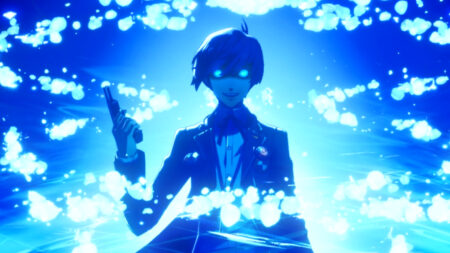Persona 3 Reload begins with the Protagonist alighting from a train. You know this isn’t what a city should look like. Not this dark and grimy, and certainly not with coffins just… there. On the street. On the way to your dorm.
You move on. Try as you might, the player can barely acknowledge them. The protagonist’s only objective is to get to the dorm.
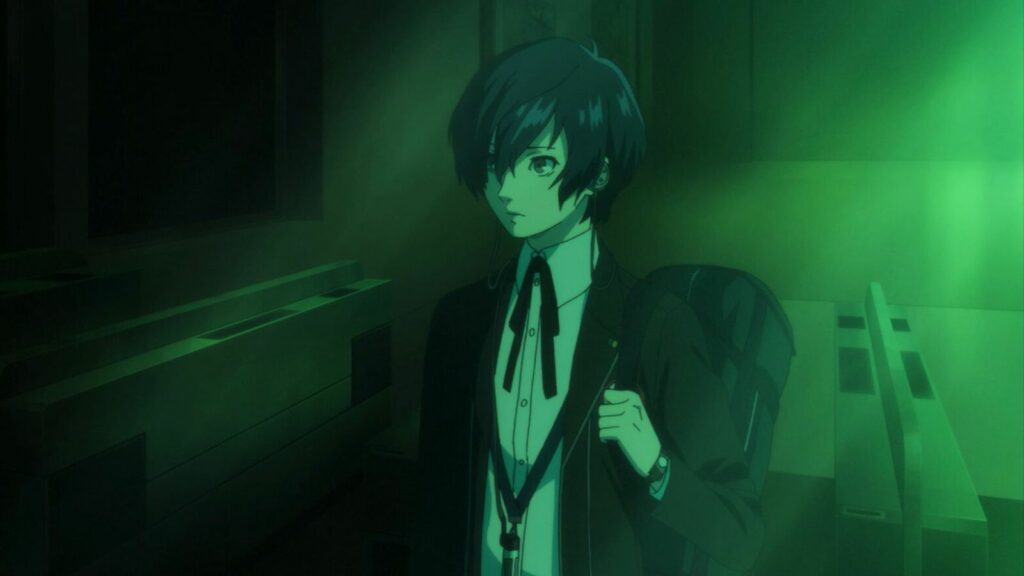
Then, a cutscene. You can only watch as a woman puts a gun to her head, her hands shaking uncontrollably. She says she can’t do it. Why? What are you getting yourself into?
Turns out she’s your new dorm mate, Yukari Takeba. She seems awkward and standoffish. But you already know — there’s so much more under that veneer.
Things move on, and you end up at school the next morning, as students are wont to do. The city looks fine, under bright sunshine and even brighter music. What happened to the things you saw last night?
There are already whispers and nuggets of information you can glean from your classmates. And then, the people in your new dorm are spying on you?
Then comes the final kicker. A monster attacks, something called a Shadow. You put a gun to your head, and without hesitation, pull the trigger.
What does that say about you?
Persona 3 Reload review: Main story is immediately engaging
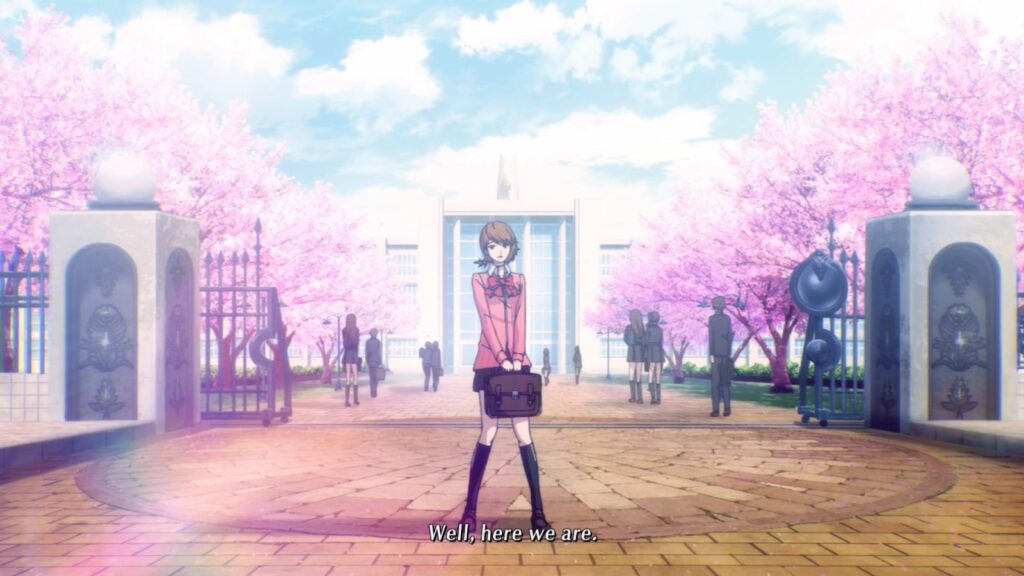
Persona 3 Reload’s strong opening sets the stage for the Protagonist. The story inevitably winds down a little, as a Persona series staple gets to work — you have to spend time with people because that’s how you grow. Your bonds are quite literally power.
And yet, there’s this constant drip of information, a perpetual reminder that everything is more than it seems. All of it is surprisingly even-handed as well, with quite a slow burn on the main plot line of the story. After four in-game months, with the calendar ending in six, there’s still so much left to uncover.
Side note, but the Evoker is incredibly evocative. Talk about putting your life on the line — pointing a gun at your head to summon your Persona is just… *chef’s kiss.*
This Persona 3 Reload album came with a free game!
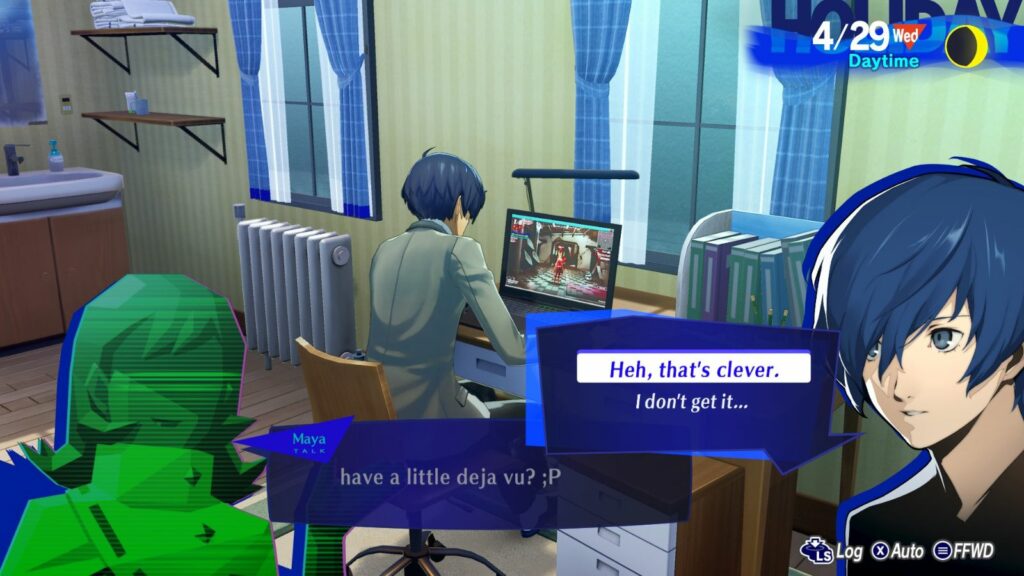
As always, Persona does not miss with their soundtrack.
Every song is a banger. That’s it. That’s the full review. You can go now. Oh, wait, there’s still the game. Right.
You want to hear more? Everybody wants to hear more. For music that quite literally accompanies you through every step of the journey, they never grow old. The “baby baby baby” stinger for tough battles. The irresistible Iwatodai Dorm bop that shows Mitsuru Kirijo must have hired some sort of wizard to infuse the speakers with magic and keep her housemates from leaving. The haunting Tartarus soundscape that has you peeking over your shoulder every so often because there might be something there and you —
The remastered soundtracks are incredibly clean. For Persona 3 veterans, they might sound different, but give them a chance. Composer Atsushi Kitajoh, rapper Lotus Juice, and newcomer vocalist Azumi Takahashi have done incredible jobs at preserving the spirit of the originals, while giving everything a modern and refreshed take.
Time waits for no man — and there’s a lot of things to get done
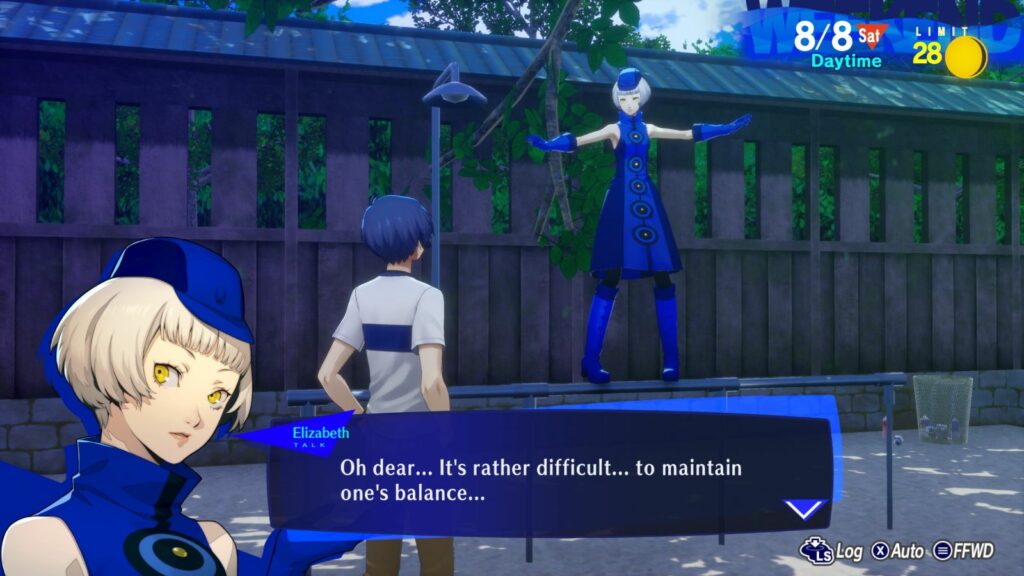
Persona’s calendar-based system is a defining characteristic of the series, and Persona 3 Reload is no different. Most days, you get two periods of time to roam freely around the map — daytime and evening. Various events are only available during certain times, and can be entirely locked off during important periods — most school Social Links aren’t available a week before tests and exams, for example.
Aside from the Social Links, each associated with a Major tarot arcana, there are much smaller hangouts and events — most importantly, from people that are not social links. You can hang out with your S.E.E.S. members, which means more stories for characters you spend all your time with.
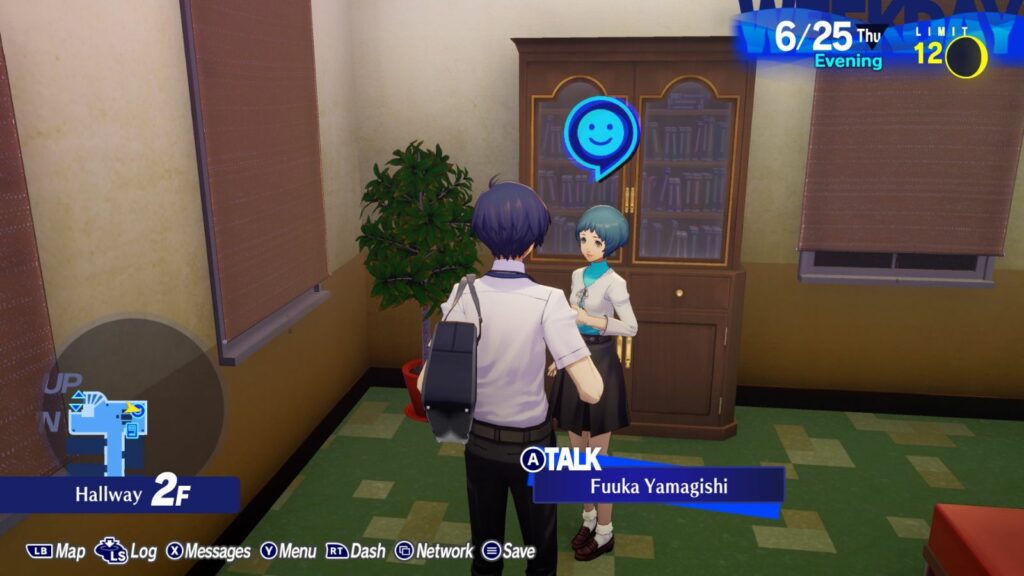
You can go to the arcade with Junpei Iori, and sit on the doorstep with Koromaru. You can go for dinner with Akihiko Sanada, tend to plants with Aigis, and drink tea with Mitsuru. These little things really improve the connections with your battle companions, who can sometimes feel less spotlit because of the lack of social links with the Protagonist.
To further encourage hanging out with your dorm mates, spending enough time with them can trigger additional powers in their personality. After watching enough TV with Koromaru, he now triggers an Auto Sukunda every combat — what a good boy.
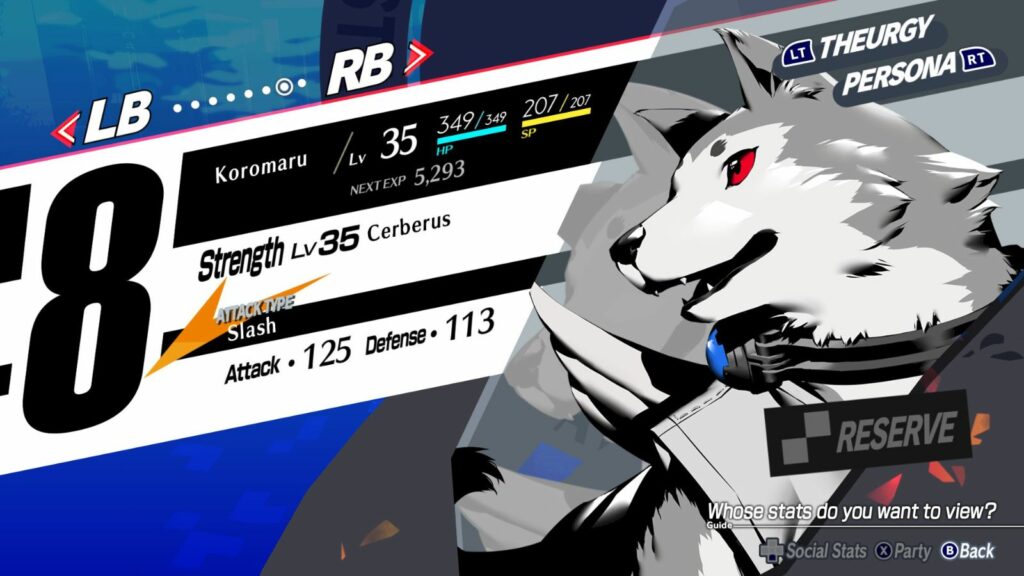
P3R’s combat system is a never-ending puzzle
Combat in P3R is a puzzle to figure out. The most important thing in most fights is to target your opponents’ weaknesses, so you can trigger powerful All-Out-Attacks that will generally outpace your other sources of damage.
Unlike Persona 5 Royal, where the Shadows are the same as your Personas — allowing you to sometimes cheat with strengths and weaknesses since they are already in your compendium — Shadows in P3R are unique creatures. Through trial and error, you eventually figure out what they are weak to, or through an expensive skill provided by your navigator, Fuuka.
For Shadows with no weaknesses? Well, good luck. A whole separate battle strategy is needed. There are also mandated fights every time a full moon occurs, which generally introduces new, interesting mechanics that can really screw up even the best-laid battle plans.
One incredible addition for P3R is Theurgy, a separate charging counter that increases based on the character’s personality. Yukari’s Theurgy improves much quicker when she’s healing instead of attacking, for example, allowing her to trigger a powerful Cyclone Arrow for free.
For free!
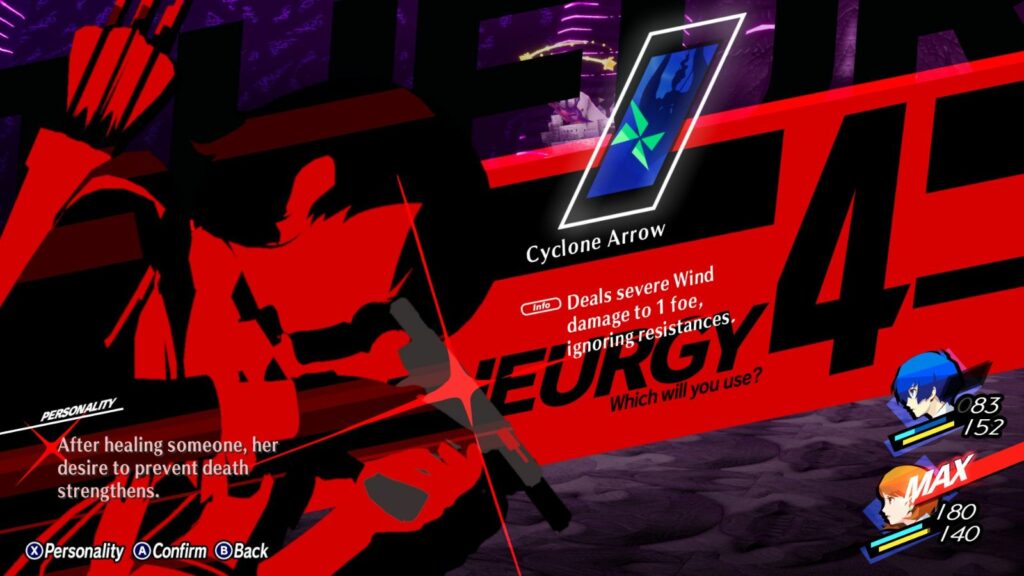
Different characters have different ways to trigger their powerful Theurgies. Some even have multiple Theurgies, introducing another way to synergize your parties for tough fights.
Tartarus goes on, and on, and on, and on…
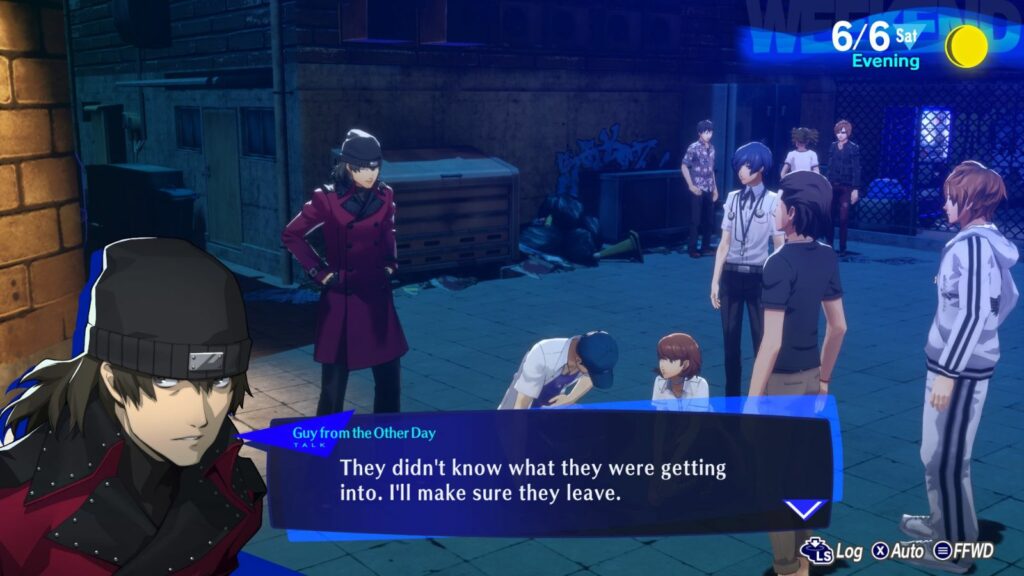
Tartarus is the centerpiece of Persona 3 Reload — for better and for worse.
The tower is your primary source of training, whether it’s for experience, money, or items. And boy, you better love the animations, the combat-puzzle of figuring out resistances and weaknesses, and the battle themes — because you’ll be doing a lot of encounters.
Tartarus has remained largely the same during my playthrough. Yes, the environments change the further up you go, but the gameplay loop is the same for every floor. Fight Shadows, hit resource blocks, open treasure chests, and find the next flight of stairs up.
Special events are still tied to combat, whether it’s approaching gatekeepers on certain floors, or diving into localized dungeons called Monad. Experiencing these for the first time is novel and scary. The novelty wears off quickly, but there’s still a pang of joy whenever you discover weaknesses by yourself through gameplay experience like checking the Shadows’ skills, rather than relying on Fuuka for analysis.

VIEW PRICE: Persona 3 Reload Aigis Edition on Xbox Series X |
Essentially, most of your novel experiences happen through combat. It’s a hardcore dungeon delve with enemies thrown relentlessly at you, with limited exploration that boils down to running around and hitting things. No jumping, no grappling hooks, no puzzles — but combat after combat.
Beware of playing too much Tartarus in one sitting, for it still instills dread and fatigue — no longer for the party members, but perhaps for the player. Pushing too far in Tartarus is taxing on your party’s resources, and also the player’s mental ability. Playing on Merciless difficulty, even normal mobs are capable of killing the Protagonist in one turn, setting back progress to the last time you saved. That’s a point for immersion and role-playing.
Steps have certainly been taken to make the Tartarus experience smoother and faster. Constant prompts pop up, giving you teleports after tough situations that let you go back to the first floor, where you can reassess your party’s situation and save the game. These include particularly tough fights in Monad, rescuing people stuck in Tartarus, and after dealing with gatekeepers that wall off certain sections of the tower.
Party indecision
While S.E.E.S. begins small with just Junpei, Yukari, and the Protagonist, the extra-curricular club quickly becomes spoiled for choice when it comes to party members. This brings another management question — do you bring out your higher-leveled members, or take a lower-leveled one simply because they have more resources?
Persona 5 Royal alleviates this by giving one of your confidants the unique ability for backup members to also earn experience. In Persona 3 Reload, that “catch-up” mechanic comes the Great Clock.
Spending Twilight Fragments within Tartarus — after a particular in-game date — might trigger the Great Clock. This lets you select two S.E.E.S. members, and after just one fight with them in your party, boosts their level to be the same as the Protagonist’s.
While the actual tooltip implies that there’s no limit to the number of times the Great Clock can trigger, I’ve not been able to access it more than once per Tartarus dive. In a way, this sort of incentivizes multiple Tartarus runs, rather than the more min-max way of trying to squeeze out as much progress in one single run.
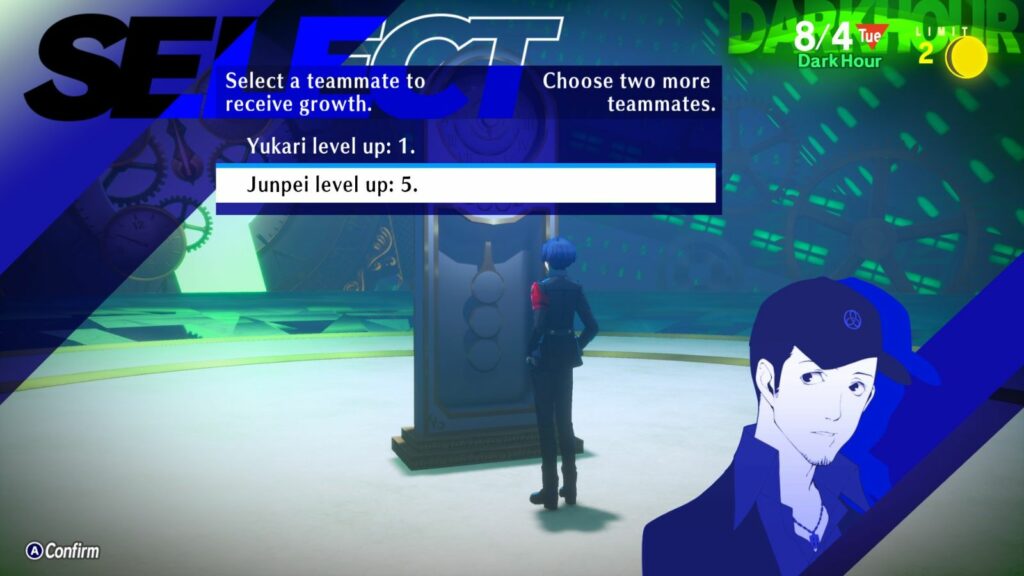
Even without these tools, P3R also implements a scaling level system. Lower-leveled members will get boosted experience through combats, and the inverse is true for those with high levels. It’s perfectly reasonable to bring the same party for every fight, especially if they are your faves, but managing your party well can extend your efficiency within Tartarus — and make use of the strengths and weaknesses of your allies and enemies.
Is Persona 3 Reload worth playing?
Yes.
As a relatively new fan to Persona — with my only experience being Persona 5 Royal — the decision is a no-brainer. The game is immediately familiar, but even though it’s my first time playing any of the P3 series, there’s nostalgia baked into it that effuses from its user interface design to the way the Protagonist walks and attacks in the dungeon.
For those with a background in P3, I think the updated graphics, the improved combat, plus the increased interactions with other characters from the male Protagonist route could be worth delving into. This game might still be lacking content from FES, but never say never as to what could be coming in the future.
Persona 3 Reload launches February 2 on Xbox, PlayStation, and PC, and will be available from day one on Xbox Game Pass.
READ MORE: Persona 3 Reload: Release date, story, price, characters, platforms, trailer
